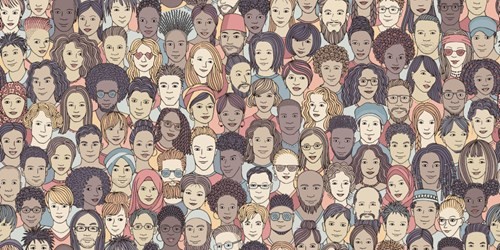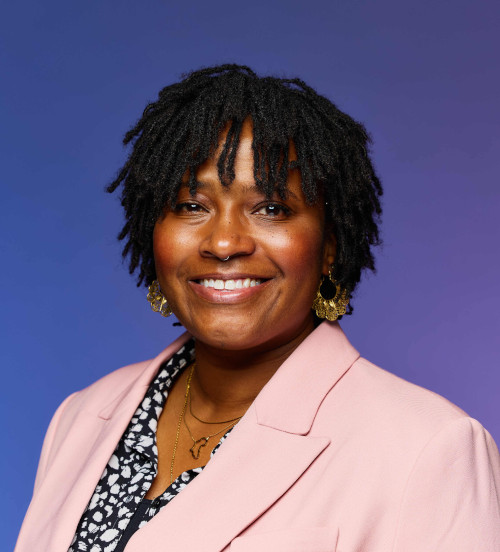Unprecedented has become the word we hate to use, but it is the most popular way to summarize 2020, with three crises converging together: health, economic and racial injustice.
Dare we provide a list and assume you have not already been drowning in apocalyptic news month after month?
First, here is a brief reminder of positive events this year:
- A record number of individuals joined protests that occurred globally in solidarity with the Black Lives Matter movement.
- A record number of citizens voted and denounced white supremacy.
- Kamala Devi Harris became the first woman—and first Black and South Asian person—elected as vice president elect.
But here are who and what we have lost:
- Ahmaud Arbery, George Floyd, Breonna Taylor and many more.
- John Robert Lewis, the former U.S. representative from Georgia.
- Ruth Bader Ginsberg, former associate justice of the Supreme Court of the U.S.
The Impact of COVID-19 on Tourism and Hospitality
Historically, the tourism and hospitality industry has been moderate in its response to events that directly impact communities of color. However, the dramatic devastation of coronavirus and having to shelter in place elevated the urgency of another illness more insidious than the virus itself. As painful as they may be, it is our 2020 losses that will lead to positive transformation.
The ongoing infections have resulted in a lack of large gatherings, plunging consumer travel confidence, the need for clear safety guidelines, business closures, layoffs, furloughs and dramatic unemployment.
Our industry has been among the hardest hit because connecting the business ecosystem through designed human experiences is what we do. If ever we were taken for granted, the world now knows that life without events, conferences, conventions, sports, concerts and parties lack fulfillment.
Meetings and Events Losses
The global events industry was valued at more than $1.1 billion in 2018 and was anticipated to grow at a compound annual growth rate of 10.3% to reach $2.3 billion in 2026. This includes public gatherings such as conferences, exhibitions, corporate seminars, promotional tradeshows, fundraisers,
Every dollar spent on business events generated an additional $1.60 for the U.S. economy. More than 93% of senior-level business managers said that face-to-face meetings improve their ability to close deals. One event with just 43 attendees supports one U.S. job. The meetings industry supported approximately 2.5 million jobs. (Source reference: 3)
[Related: Why Learning Your DEI Certifications Can Promote Supplier Diversity]
Travel Losses
Since the beginning of March, the U.S. travel economy’s losses from the COVID-19 pandemic have tallied $453 billion in travel spending. Currently, a total of 4.2 million travel-supported jobs have been impacted, and without immediate aid, 5.5 million travel-supported jobs will be lost altogether. (Source reference: 5)
Hotel Losses
Projected as the worst year on record for hotel occupancy, a nearly 50% decline is predicted to reach a $240 billion loss in revenue. Even the most developed cities will see a prolonged return of the 65% laid-off and furloughed employees without a drastic rise in occupancy or support enacted by Congress. (Source reference: 1)
The totality is unfathomable, and most are keeping distracted with Zoom meetings and virtual events. The few brave enough to meet face-to-face have varied perspectives despite global mandates, restrictions and recommendations. Although the division is more apparent than ever, change is among us, making the opposite equally true.
The increase in widespread awakening and learning is reflected in book sales. Whether fact-checked or not, the influx of information shows elevated engagement levels, the embracing of varying views, ways of thinking, creativity and talents. Amidst turmoil, there is hope that our diversity builds a more robust, more prosperous country, community and industry.
“2020 will be a historic year for the meeting and convention industry in many ways. COVID-19 has led to an impossible number of virtual meetings, loss of daily routines, loss of family and friends, job loss and The Pivot."
—Sybil Davis, Global Sales Leader, Business Connector, Youth Mentor
What We Learned: Reflection
Had professionals in our industry maintained their workload and avoided being regulated to small group events, they may have never understood the current devastation at its core. Sheltering in place has effectively highlighted both the direct and indirect effects of the crises.
As with everyone, in examining our losses we felt the impact and learned. What is predicted for our industry's future will identify disparities and critical benchmarks that can aid in measurable and sustainable change.
While there have been many times in history where society reflects on diversity and inclusion expectations, 2020 has produced a real opportunity for change. COVID-19 has exposed alarming socioeconomic disparities and a lack of inclusion in our society for underserved communities; we are now broadening our understanding to plan long term.
[Related: How Associations Can Foster Diversity and Inclusion]
Diversity, Equity and Inclusion (DEI) have often been reduced to an elusive acronym because it has failed over the years for most. Reminiscent of a playlist on repeat, unconscious, implicit and explicit biases maintain their top ranks across all charts. Many scholarly articles, training videos,
So, heavily in the rotation, they are often the culprits that drown out the clarity of what it will take to achieve sustainable and measurable solutions. While some believe tolerance and cordial engagement is the answer, another school of thought is far more effective and imperative now more than ever.
Oppressive systems, practices and procedures must be dismantled through legislation and then enforced by mandates, fines and incentivization throughout our society. We cannot afford to wait for changes in social behaviors because they are slow to mature. Biases can only be unlearned through cognitive development, which occurs in real-world scenarios.
We have learned in the last nine months that it is time to evolve from information to application. A journey through stages of empathy exposes awareness as only an anecdotal gesture. Trainees have been oversaturated with terms that fail to move the needle. This information alone has not achieved a strategic commitment to DEI, which is the investment of money, resources and sacrifice of privilege. Diversity, Equity and Inclusion must be synced with a moral compass, which is one aspect of forwarding progress, while, professionally, it must also align with business objectives.
“The opportunity to network and have a meaningful dialogue regarding the state of DEI in the Tourism and Hospitality industry and beyond.”
—Richard Lee Snow, Regional Development Director/Washington (DC) United Negro College Fund Inc.
Looking Forward
“[The] COVID-19 pandemic has adversely affected many associations, trade industry meetings and conventions, paralyzing our industry. These meetings and conventions were severely impacted because most of the annual conventions are the primary budget funding source throughout the year. Additionally, the members are motivated by the connectivity and synergy that happens during the in-person gatherings.”
—Janice Sykes Ross, Director of Belmont Mansion /American Women and Heritage Society
Diversity Inc’s top 50 companies for diversity may identify those who are getting it right, but it’s wishful thinking to believe they are without flaws. Diversity is a result of inclusive behavior that can be measured over a sustained period. It can be verified by transparency, shared best practices and consistent innovation.
Propaganda can no longer distract the public from its curiosity about executive leadership demographics, staffing practices, supplier diversity, content programming and external assurance that Black lives genuinely matter. Performative and trivial gestures are noted with the expectation that receipts will be provided.
As it is affectionately called, the fourth industrial revolution—technology and information—expands how information is being processed. While currently disseminated at a higher rate than the human brain functions, the access to information is causing people to realize that the singular, homogenous narrative is the conspiracy, the vitriol a barrier to reimagining an inclusive society.
Dismantling, defunding and decriminalizing are terms that can lift the needle. In doing so, we analyze the normalization of antiquated beliefs perpetuated in a routine that for too long has gone unquestioned. How we have been socialized to function must be reimagined.
Although what we are experiencing is not science fiction.,o
[Related: Industry Leaders Talk Diversity and Inclusion]
2021 DEI Predictions
Indeed, it is a prediction season. The urge to predict what will happen in 2021 and beyond is sure to bring all sorts of forecasters out of the woodwork. They will come in many forms: economists, journalists, political consultants, business leaders and futurists. Few will be DEI practitioners, but it is their statements about the future that matter most.
Despite political instability, economic recession, natural disasters, terror threats, war or pandemic, the hospitality industry is no stranger to adversity and resilience. Meetings, events and tourism are dynamic economic contributors, essential to our daily lives for both leisure and business. A return is inevitable.
How leaders choose to return will determine who has learned from their reflection of the past, both presently and historically.
Our first article this year, “The Critical Importance of Diversity, Equity and Inclusion in the Meetings and Hospitality Industries,” spelled it out:
“Our willingness to collect data, conduct an assessment to gain more in-depth insight into those we serve, report findings to be transparent and authentic, identify benchmarks that hold us accountable to objectives and key results in alignment with our mission—these are the actionable skills that showcase leadership buy-in now and into the future.”
For leaders that are strategically committed to DEI, the following are priorities for 2021:
- More internal and external pressures to live up to commitments to equity with action.
- Increased accountability for performative, symbolic or public statements vowing solidarity with Black Lives Matter.
- Actions that address issues of healthcare disparities and social determinants of health.
- Focus on supplier diversity strategies that improve access to professional development, selection processes and procurement opportunities for underserved and underrepresented businesses
- Technology for the engagement and accessibility of persons with disabilities.
- DEI transparency and commitment that both satisfies and exceeds compliance and obligation.
- A leadership and upper ward mobility pipeline that improves retention, recruitment and development of diverse talent.
- Accountability for diverse re-staffing strategy in the tourism and hospitality industry.
In Conclusion
We cannot avoid reality; it is marginalized daily and now brought to everyone's attention because these unprecedented times have been indiscriminate. We must weigh in on the harsh truth and not replace it with a digestible, palatable or romanticized version. In doing so, we can examine our behaviors, processes and procedures to implement a strategic commitment to Diversity, Equity and Inclusion for both measurable and sustainable change.
Source References
Read Next: How to Recruit Underrepresented Professionals for the Next Generation of Leaders




